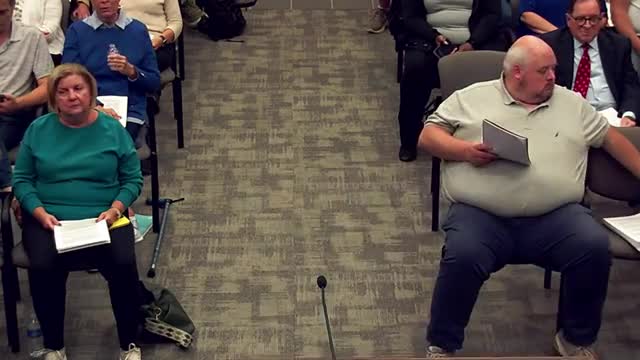Lancaster County Council adopts 9-month moratorium on new residential development in Panhandle area
Get AI-powered insights, summaries, and transcripts
Subscribe
Summary
Lancaster County Council on first reading approved an ordinance imposing a nine‑month moratorium on acceptance, review and approval of applications that would authorize new single‑family subdivisions or new multifamily residential developments within the defined Panhandle area and an adjoining corridor.
Lancaster County Council on first reading approved an ordinance imposing a nine‑month moratorium on acceptance, review and approval of applications that would authorize new single‑family subdivisions or new multifamily residential developments within the defined Panhandle area and an adjoining corridor.
The council also invoked South Carolina's pending‑ordinance doctrine so the measure became effective immediately upon the first reading as amended.
The moratorium limits covered actions to new residential subdivisions of more than three lots, commercial permits only if they are for multifamily residential use, major subdivision preliminary plans, master developments and zoning verification letters that would enable large residential yields. The ordinance does not stop single houses built on an existing lot or construction in subdivisions already approved and vested under state law.
The measure grew out of repeated public comments at and before the meeting urging a pause so county staff and council can finish a comprehensive Unified Development Ordinance (UDO) rewrite, reassess impact fees, and examine first‑responder and road capacity in the rapidly growing Indian Land/Panhandle area. More than 40 speakers and 37 electronic comment submissions were entered in support of a pause or asking for stronger developer impact fees and road improvements. Speakers included residents, fire‑district representatives and several planning and public‑safety professionals.
Development services director Allison Harden told the council the moratorium area was mapped in the legal ad and is limited to unincorporated portions of the Panhandle plus a rural stretch between the Catawba River and Riverside/Old Hickory Road down to Highway 9; Van Wyck town limits are excluded. Harden said the pause was designed to protect "larger multi‑lot developments" rather than family lot splits and described three‑lot subdivision as the cut‑off during the moratorium period.
Councilmembers debated whether to exempt projects already in the review pipeline. After discussion an amendment from Councilmember Luis deleted a staff exhibit listing pending matters and made clear that only developments with vested rights under the UDO (for example, those with preliminary plat approval from the Planning Commission) would proceed during the moratorium. The amendment passed unanimously; the main motion as amended also passed unanimously.
Speakers representing fire, EMS and planning urged that the county quantify units already approved but not built, identify the gap in first‑responder resources, and update school and road impact data before resuming approvals. Planning staff agreed to provide clearer inventories of pending applications and to return with language and maps for subsequent readings. Councilmembers noted state law limits moratoria to a maximum of 12 months; the ordinance adopts nine months with a potential 90‑day extension.
What happens next: The ordinance will return for subsequent readings with technical edits. Staff promised to provide lists of applications in process and clearer rules on vested rights and to continue the UDO rewrite.
